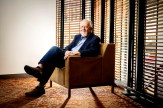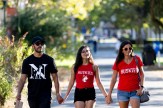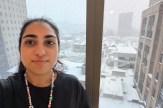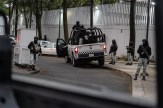Students report from ‘eye-opening and heart-filling’ dialogue in Greece
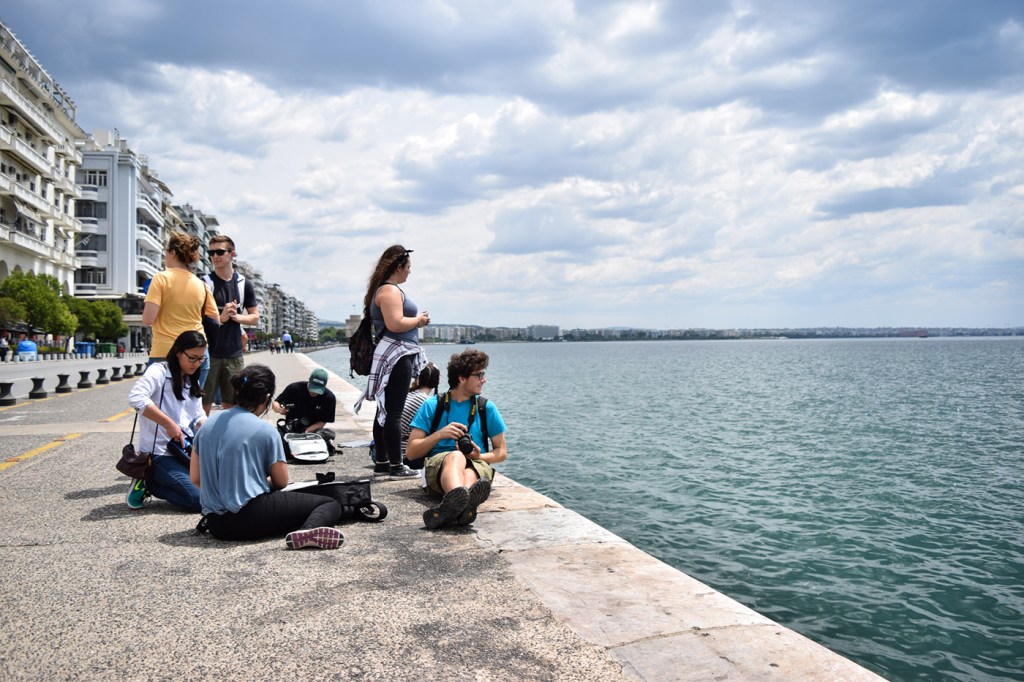
This summer, a group of 18 student-journalists at Northeastern became an international press corps, reporting from Greece on the country’s economic disaster, the Syrian refugee crisis, and everything in between.
During the five-week Dialogue of Civilizations program, students were challenged to overcome unique hurdles in order to produce thoroughly-reported, high-quality stories.
“When professors embark on dialogues, they often go to countries that are related to their research focus; a historian might go to a certain city in Italy,” said Carlene Hempel, teaching professor in the School of Journalism, who led the trip. “As journalists, we’re generalists, so I look for a place that has an emerging story for us to cover. We’re chasing the story.”
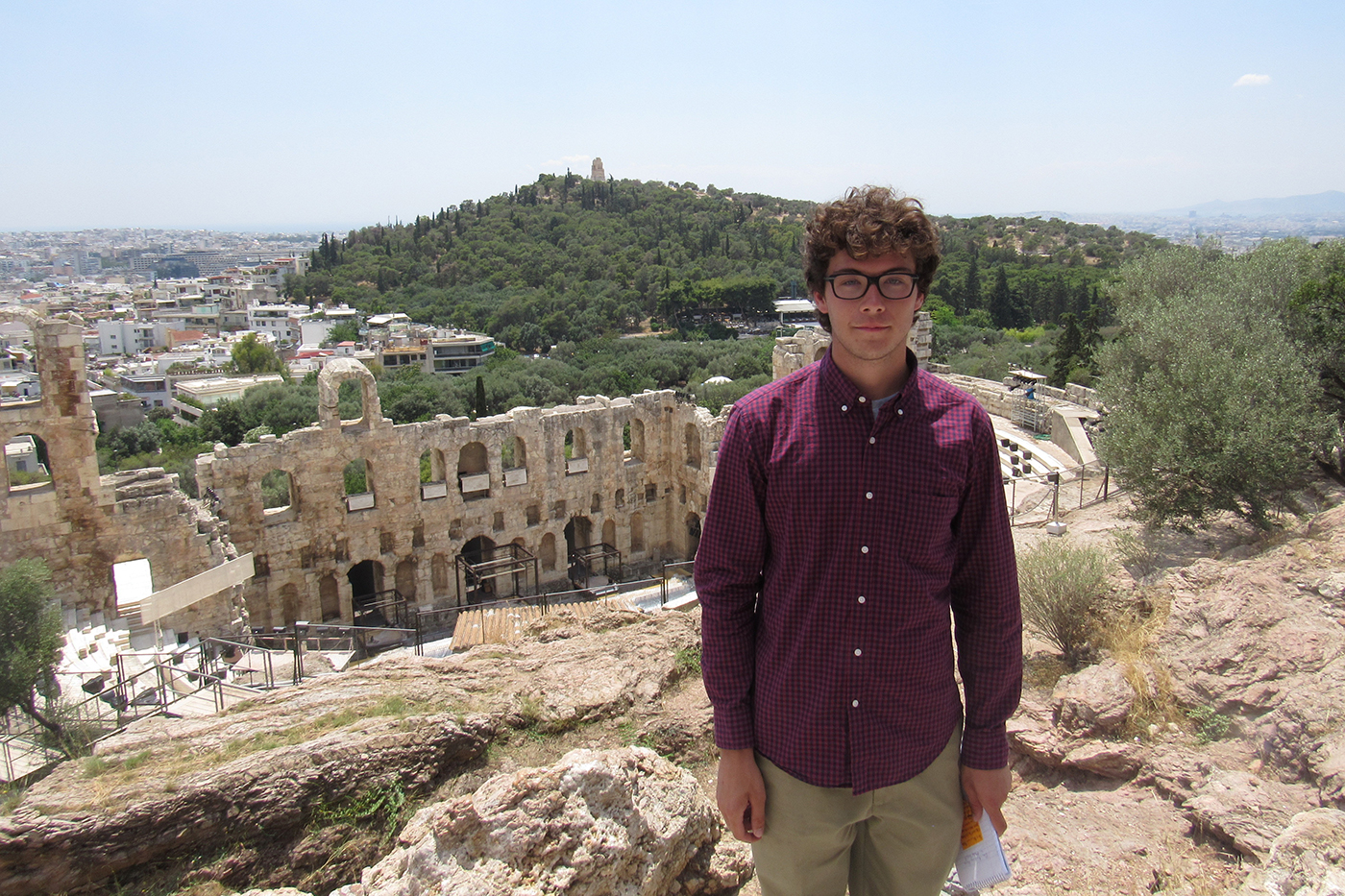
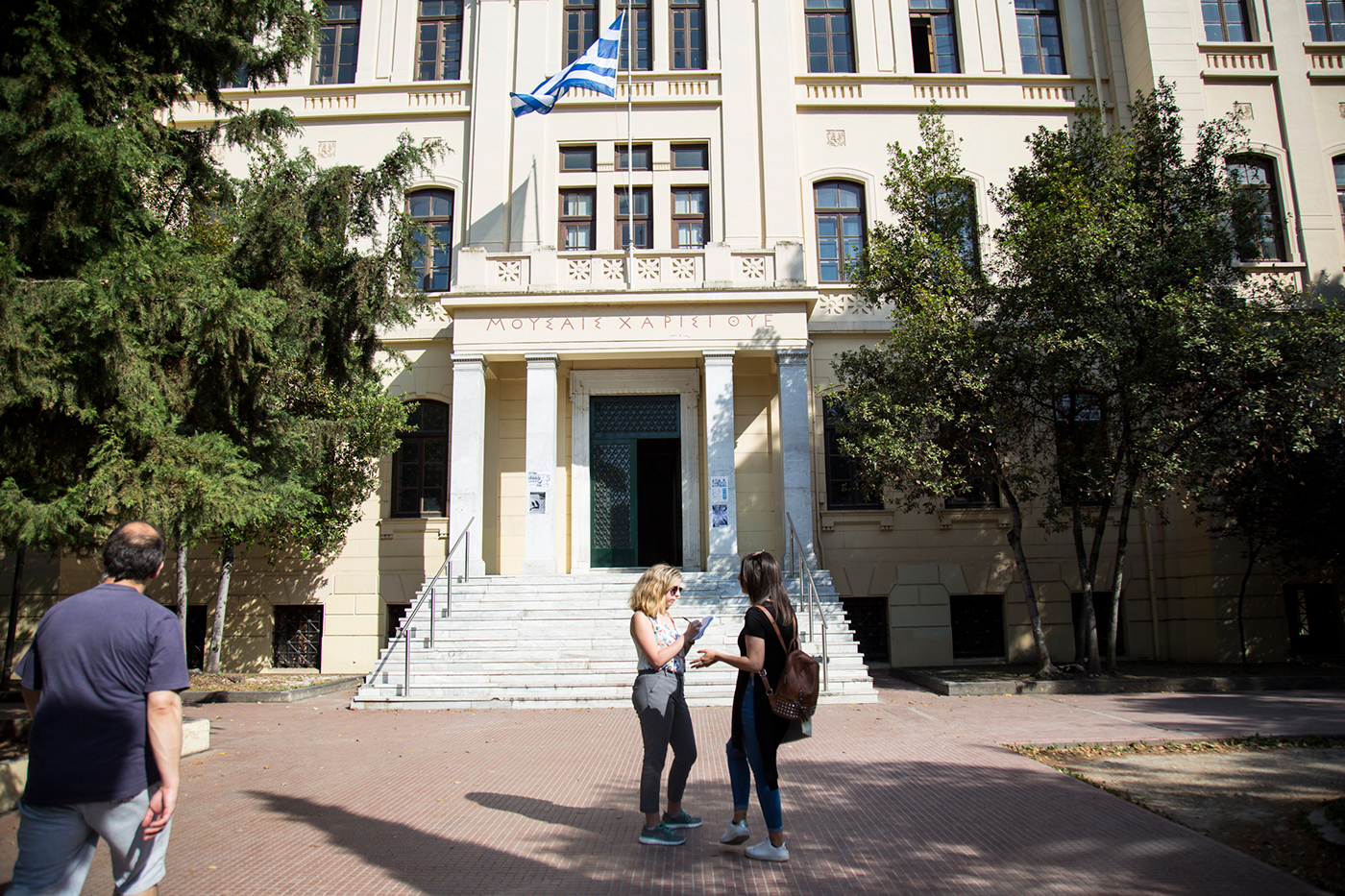
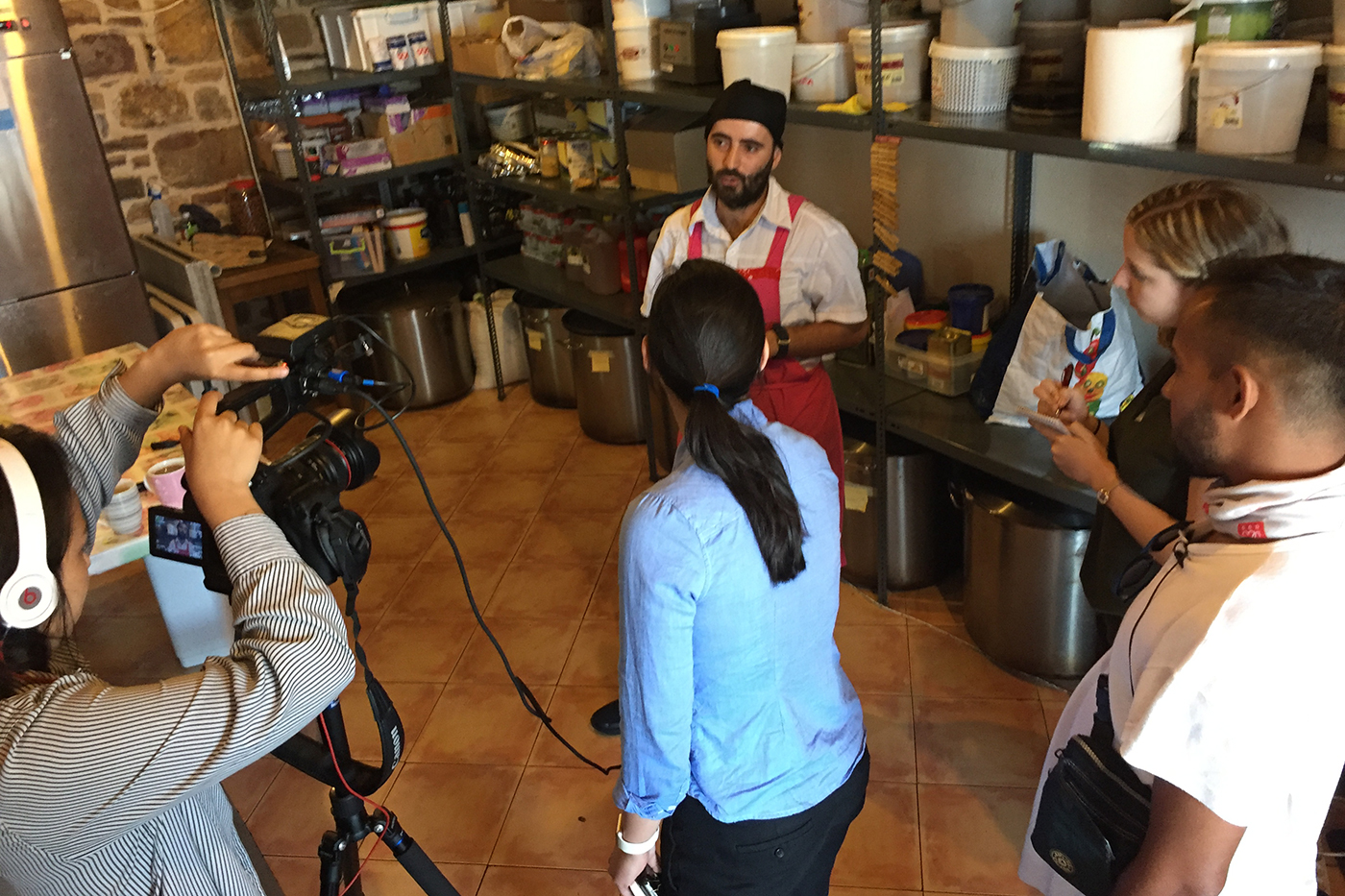
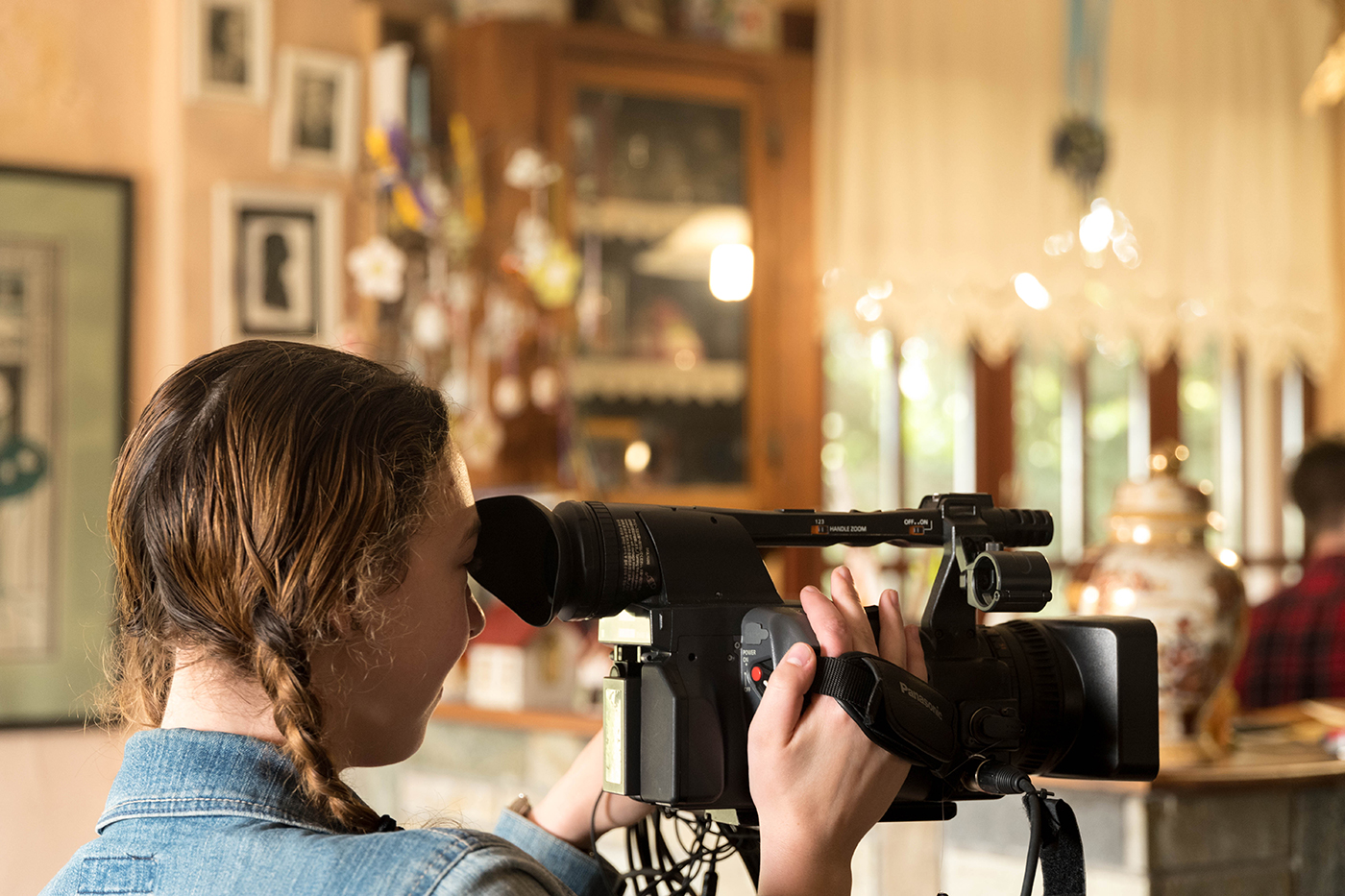
A country sagging under the weight of its debt, serving as a gateway into the European Union for hundreds of thousands of refugees, and bursting with history and culture—Greece is the story students chased this year.
The students, along with Hempel and professor of the practice Mike Beaudet, set up a newsroom in Thessaloniki, a city that hugs the Aegean Sea in north-central Greece.
From there, students reported on the construction of Athens’ first public mosque—a project that makes Athens the first major European city with an official mosque, Hempel said. They also reported on the devastating effects of tourism and climate change on native sea turtle populations, and on a clause in the country’s bailout package that requires it to lease out its infrastructure, including beaches, airports, and railways.
“There were so many reasons for people to go,” Hempel said of the students, noting that it’s oftentimes the unplanned conversations that lead to the best stories.
“I always tell our students to get on Twitter, get on blogs, talk to bar owners, to bakery owners; that’s the ‘dialogue’ part of ‘Dialogue of Civilizations.’ As in any place, those are the people who know the stories we should be following,” Hempel said.
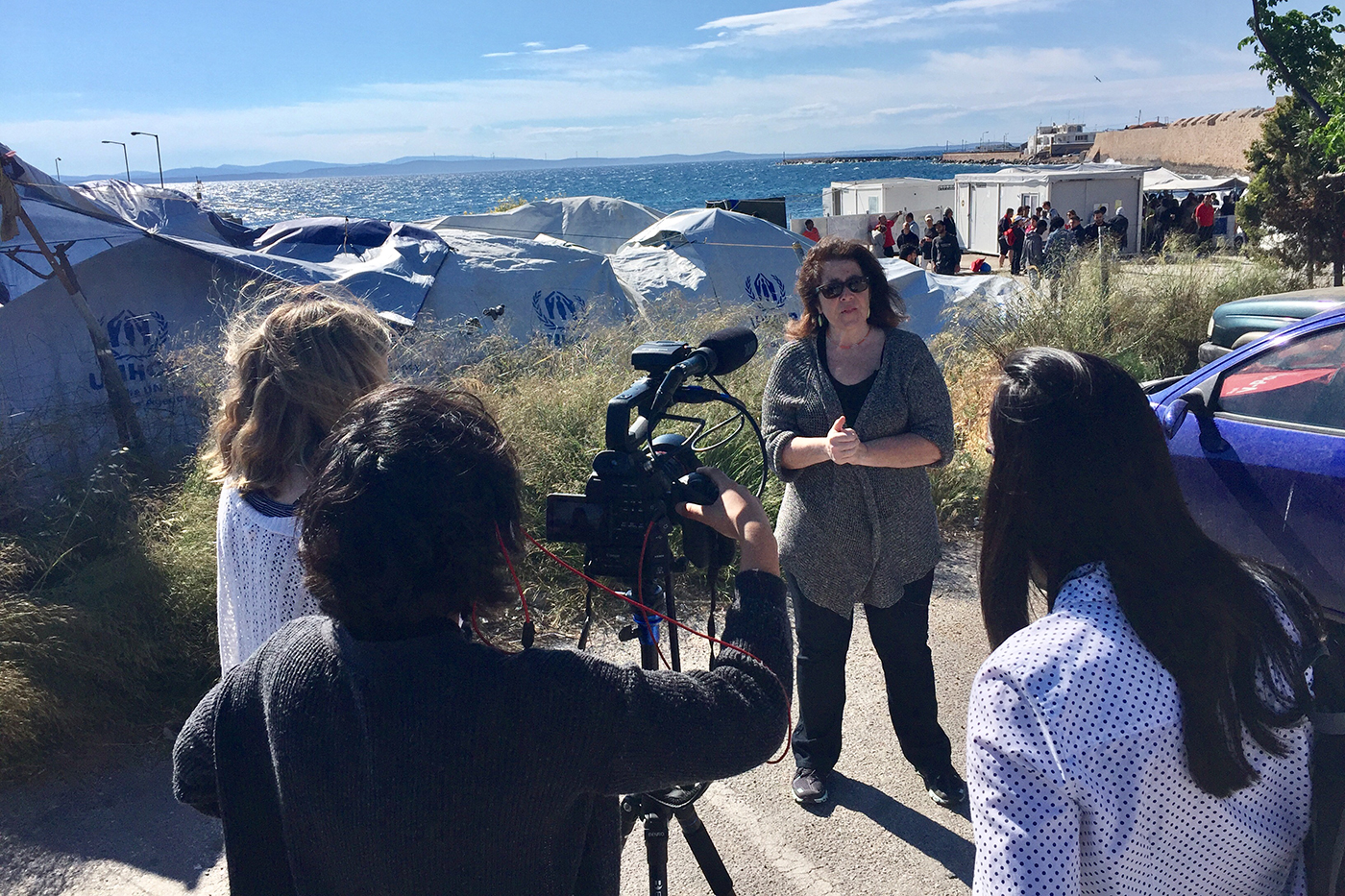
Students report from a refugee camp in Greece. Photo courtesy of the School of Journalism.
However, it was the country’s refugee crisis—a humanitarian emergency that’s left refugees stranded and the country struggling with how to proceed—that drove most of the reporting.
Though the group had made inroads with one refugee camp before departing the U.S., “a lot of work had to be done on the ground for these stories,” Beaudet said.
For example, one of the first reporting trips the students took was to a refugee camp on the mainland, Beaudet said. There, people were working to get into apartments or to other European countries. While conditions were certainly better than in some of the more triage-style camps on islands like Chios, “they weren’t great there, either,” Beaudet said.
Olivia Arnold, AMD’18, was one of the students who reported from Chios—an experience that was rewarding, if personally challenging.
“Reporting from a refugee camp in Chios was more difficult than I could have ever imagined,” she said. “I am no stranger to reporting on tragedies, but the situation at the camp in Chios was so dire and bleak. There is immense suffering because countries have shut their doors to desperate people fleeing their war-torn homes and trying to protect their families. I witnessed the very real, human consequences of xenophobic policies enacted by the international community, and it was not easy.”
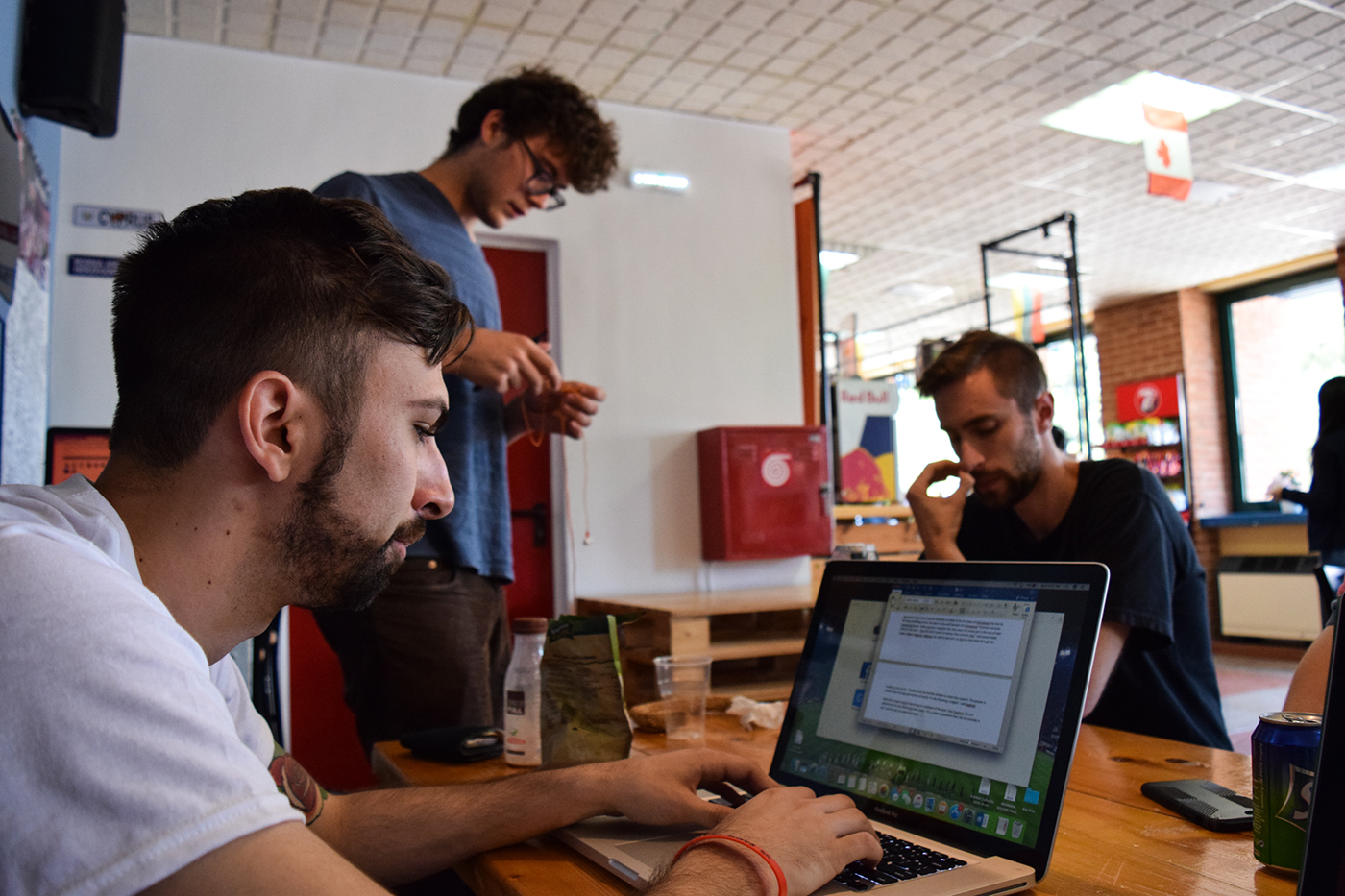
Photo courtesy of the School of Journalism
Still, she and Paxtyn Merten marveled at the kindness they encountered. “As I was reporting the story about refugees’ living situations, I was truly blown away by the kindness of everyone I met,” said Merten, AMD’20. “Despite having close to nothing, the people my reporting team encountered always offered us something. A family of eight living in a run-down, one-bedroom apartment gave us hot tea and sugar. A mother of four living in a refugee camp offered us juice boxes and plates of fruit. Another mother of four, who lived in a nicer apartment and whose husband died of cancer years prior to the family’s departure from Syria, handed us full plates of cooked rice and chickpeas despite the fact that she and her daughters were beginning to fast for Ramadan.
“The kindness that all of these people had in their hearts was unbelievable,” she said. “Their situations and experiences could have easily turned anyone sour, but here they were, telling us their stories, laughing and smiling and joking with us through translators and hand motions and limited English. It was an eye-opening and heart-filling experience.”
